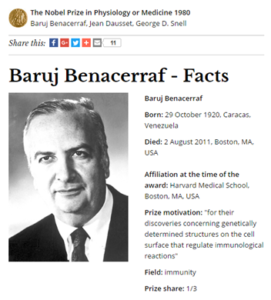 Last week I discussed the various forms of patronymics that are formed by adding prefixes or suffixes meaning “son/child of,” concentrating on UK varieties. Now I go further afield.
Last week I discussed the various forms of patronymics that are formed by adding prefixes or suffixes meaning “son/child of,” concentrating on UK varieties. Now I go further afield.
The suffix -son is common in English speaking, Scandinavian, and Teutonic countries, spelt –søn and -sen in Denmark, Norway, and the Netherlands, and -sohn in Germany. Sorensen is the son of Severinus (a patronymic) or Sarah (a metronymic). In most countries once a surname of this type is established it persists through the family line and becomes a hereditary surname rather than a true patronymic. If Peter son of John came to be called Peter Johnson, Peter’s son David would not be called David Peterson, but David Johnson. Medical examples include Addison’s disease (from Adam), Andersen’s disease (Andrew), Hansen’s disease (Johannes), Jacksonian epilepsy, Mendelson’s syndrome, Nelson’s syndrome (Neil), Parkinson’s disease (Peterkin), Stevens–Johnson syndrome, Thomsen’s disease, Waterhouse–Friderichsen syndrome, and Wilson’s disease.
Other languages have -ian (Armenian), -npoika/-ntytär (Finnish), -kind (German), -ides or -opoulos (Greek), -fi (Hungarian), -nejad (Iranian), -escu (Rumanian), and -oğlu (Turkish).
Variants of the suffix -ovich/-evich, feminine –ovna/-yevna/-ichna, indicate “child of” in Slavonic languages. Russians have a first name, a patronymic, and a surname. Leo Tolstoy’s full name was Lev Nikolaevich Tolstoy. Struggling to understand the dramatis personae in a Russian novel can be hard going for Western readers, because the characters are often called by several different names: the surname, the first name plus the surname, the first name plus the patronymic, or a diminutive pet name (such as Kolya, from Nikolai); furthermore, the patronymic can be shortened (for example, from Ivanovich to Ivanich). The famous mathematician, Nikolai Ivanovich Lobachevsky, satirised in a song by Tom Lehrer, might be called Nikolai, Nikolai Ivanovich, Nikolai Lobachevsky, Kolya, or Kolya Ivanich. Variants of this suffix in other tongues include -owicz (Polish) and -ović (Croatian).
Medical examples include Wladislaus Onufrowicz, of the Onuf nucleus in the ventral spinal horn at S2; Casimir Filipovich, whose sign is yellow discoloration of the palms and soles in typhoid; and Eli Moschowitz (from Moses), whose syndrome is better known as thrombotic thrombocytopenic purpura. Sometimes -ovich is shortened to –ov/-ev or -ich. Korotkov of the sounds was named after someone called Kortoyga (Russian for “Shorty”), Korsakov of the psychosis after Korsak (“Foxy”), and Pavlov of the conditioned reflex after Paul. Ivan Illich, author of the famous diatribe Medical Nemesis, who popularised the concept of medicalisation, was probably descended from someone called Ilya (Elias).
The Russian word for an old woman is baba, which gives the metronym Babich. Babinski of the reflex is formed from Babich plus -inski, a common Slavonic suffix that denotes a place. So the original Babinski was born in a place where an old woman (perhaps his mother or grandmother) lived.
Ben in Hebrew means son of (female bat), also used as such in Tunisia. Benjamin means either son of my right hand or son of the south. The Benjamin syndrome is a congenital abnormality that includes hypochromic anaemia, dental caries, and a large head. However, most other common patronymics beginning with Ben, for example Benson, come from Benedict (blessed). Bin and ibn are the Arab equivalents of ben, as in Osama bin Laden (female bint).

In many Arab countries names are formed from the individual’s first name, followed by the father’s name, followed by the family (tribal) name; sometimes the grandfather’s name is also inserted. The Aramaic form is bar; add Talmai, mentioned in the book of Numbers, and you get Barthel scores, Barthélemy’s disease, [Casper] Bartholin’s cysts, duct, and glands, [Thomas] Bartholin’s anus cerebri, and St Bartholomew’s Hospital.
Baruj Benacerraf, an Argentinian of Jewish descent, won the 1980 Nobel prize for his work on the “genetically determined structures on the cell surface that regulate immunological reactions” (picture). Acero, Spanish for steel, can refer to someone who makes swords or is inflexible. But perhaps -acerraf is derived from Asherov, the son of Asher (Hebrew, fortunate or blessed). If so, Benacerraf is a double patronymic.
Jeffrey Aronson is a clinical pharmacologist, working in the Centre for Evidence Based Medicine in Oxford’s Nuffield Department of Primary Care Health Sciences. He is also president emeritus of the British Pharmacological Society.
Competing interests: None declared.
